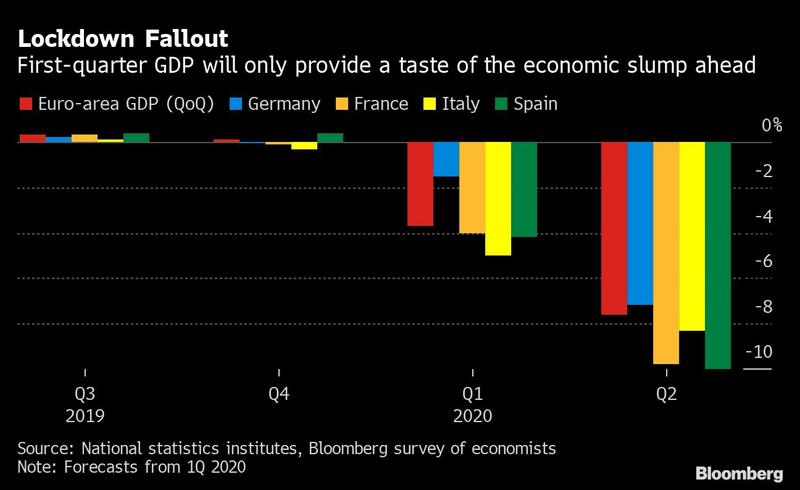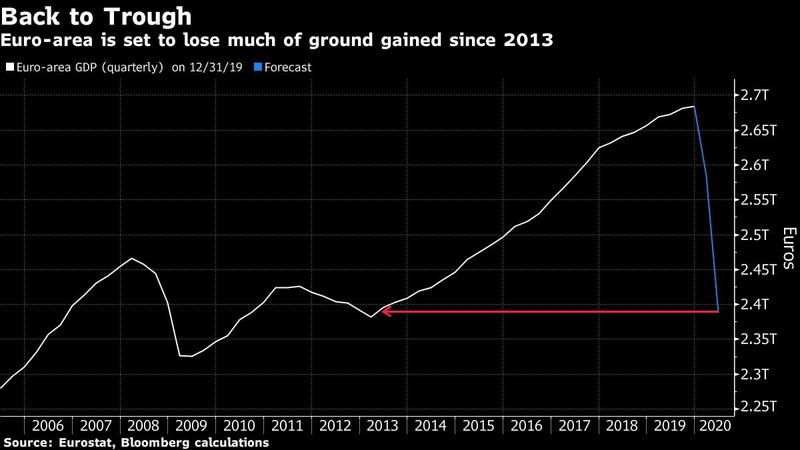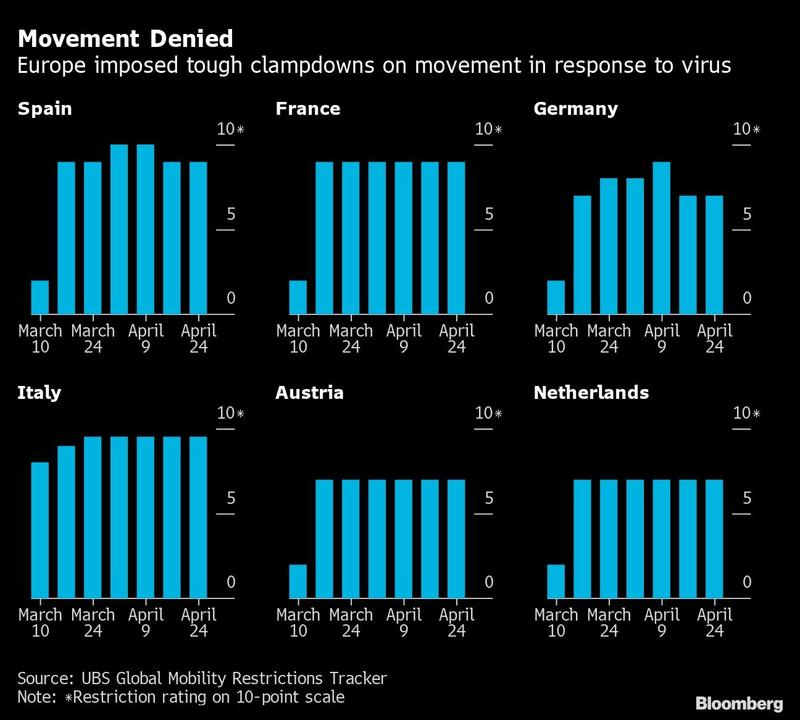 A pedestrian wearing a protective face mask and the Notre Dame cathedral are reflected on a window of a closed cafe in Paris, France, on April 14, 2020. (CYRIL MARCILHACY / BLOOMBERG)
A pedestrian wearing a protective face mask and the Notre Dame cathedral are reflected on a window of a closed cafe in Paris, France, on April 14, 2020. (CYRIL MARCILHACY / BLOOMBERG)
The euro-area economy’s expansion has come to a dramatic halt, pummeled by a pandemic that’s killed thousands and destroyed businesses and livelihoods.
First-quarter GDP data due Thursday will show a 3.7 percent contraction, the first since 2013, capturing the early hit to the economy from shutdowns to contain the coronavirus. The current quarter is likely to be even worse, with a disastrous deterioration in economic prospects likely to produce the deepest recession on record.
France, Italy and Spain also publish estimates Thursday, and the European Central Bank, which has unleashed unprecedented stimulus to help the economy, announces its latest policy decision.

Back in January, economists in Bloomberg’s survey were predicting quarterly growth of about 0.3 percent this year. But with whole swathes of the continent shut down to contain the coronavirus - hitting little corner stores and large factories at the same time - the situation has changed rapidly.
A cumulative decline in output of some 11 percent in the first half means the 19-nation economy would lose nearly all the ground gained over the past seven years of growth.
Measures of confidence across the euro area are showing just how difficult it will be for policy makers to get the economy going again. French consumer sentiment published Tuesday dropped the most on record in April, with households’ views of future finances and living standards plunging.
European Central Bank Executive Board member Fabio Panetta said that in addition to health fears, people “are also concerned about their economic situation as incomes and revenues dry up.”
ALSO READ: EU leaders agree on need, but not size, of virus recovery fund

Governments are starting to slowly ease widespread restrictions on movement implemented from mid-March, laying out plans to start getting life back to normal.
Even though they are proceeding cautiously to prevent a second wave of the outbreak, most economists expect to see a rebound in GDP in the second half of the year. That’s good news, though it won’t be enough to undo the damage - Bloomberg Economics sees the euro area shrinking 8 percent in 2020.

Before people return to stores and restaurants, they will want to be assured that the risk of infection has receded. Governments’ efforts to protect workers’ income - or at least a large portion of it - have created the foundation for potentially strong rebound in demand.
“Pensioners, people working normally, people working from home, and people on European furlough receive normal or near normal income,” said Paul Donovan, chief economist at UBS Wealth Management. “Spending is down. That means enforced savings. Those savings could support the bounce back - if fear is contained.”
READ MORE: EU rewrites seven-year budget to aid recovery


